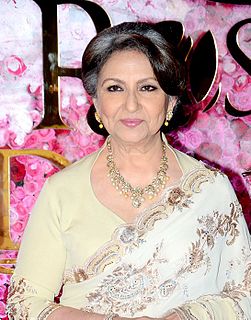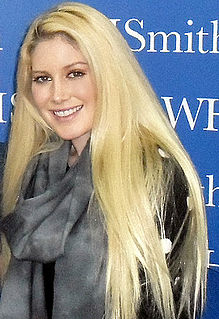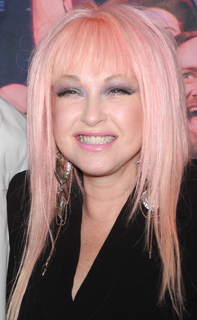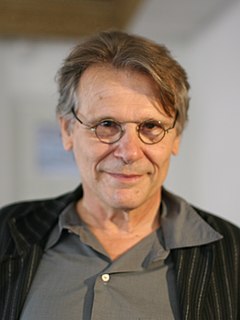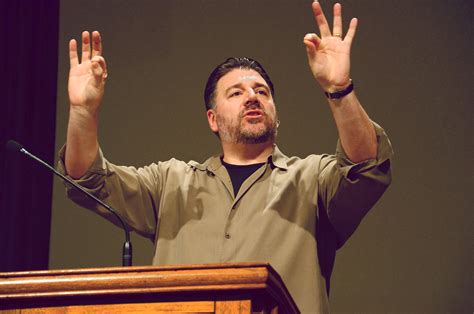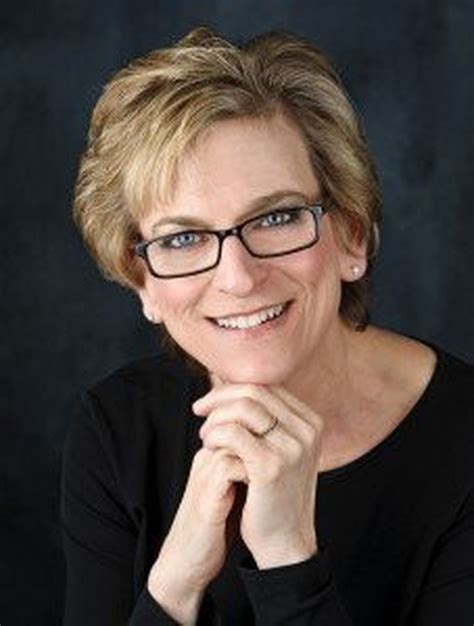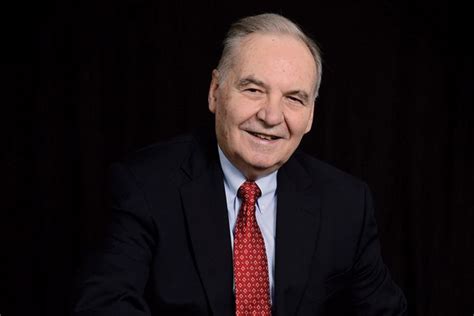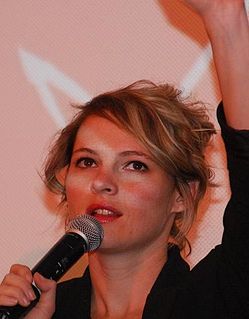Top 1200 Worth Reading Quotes & Sayings - Page 3
Explore popular Worth Reading quotes.
Last updated on April 16, 2025.
By believing that only some of our students will ever develop a love of books and reading, we ignore those who do not fall into books and reading on their own. We renege on our responsibility to teach students how to become self-actualized readers. We are selling our students short by believing that reading is a talent and that lifelong reading behaviors cannot be taught.
When I was thirteen, I was in a supermarket with my mother, and for no reason at all, I picked up a science-fiction book at the checkout stand and started reading it. I couldn't believe I was doing that, actually reading a book. And, man, it opened up a whole new thing. Reading became the sparkplug of my imagination.
I think it's a great thing to hear the author reading. I've listened to CDs of Cheever and Updike reading their stories and Hemingway. To hear what their voices were like is amazing. Whether they're reading well or not, it's great to listen to the intonation and the beat of the guy who wrote the story.
Well-meaning adults can easily destroy a child’s love of reading: stop them reading what they enjoy, or give them worthy-but-dull books that you like, the 21st-century equivalents of Victorian “improving” literature. You’ll wind up with a generation convinced that reading is uncool and worse, unpleasant.
So often we think, well, kids learn to read at school, I don't have to be responsible for that. But in fact they learn to love reading at home, and therefore it's really important that we as parents preserve the joy of reading by supporting them and reading things that speak to their hearts, books that they love.
I want everything we do to be beautiful. I don't give a damn whether the client understands that that's worth anything, or that the client thinks it's worth anything, or whether it is worth anything. It's worth it to me. It's the way I want to live my life. I want to make beautiful things, even if nobody cares.
Nearly all bookish people are snobs, and especially the more enlightened among them. They are apt to assume that if a writer has immense circulation, if he is enjoyed by plain persons, and if he can fill several theatres at once, he cannont possibly be worth reading and merits only indifference and disdain.
If we consider men and women generally, and apart from their professions or occupations, there is only one situation I can think of in which they almost pull themselves up by their bootstraps, making an effort to read better than they usually do. When they are in love and are reading a love letter, they read for all they are worth.
But reading is different, reading is something you do. With TV, and cinema for that matter, everything's handed to you on a plate, nothing has to be worked at, they just spoon-feed you. The picture, the sound, the scenery, the atmospheric music in case you haven't understood what the director's on about... The creaking door that tells you to be stiff. You have to imagine it all when you're reading.
The great opposition to reading is what I allow to fill my time instead of reading. To say we have no time to read is not really true; we simply have chosen to use our time for other things, or have allowed our time to be filled to the exclusion of reading. So don't add reading to your to-do list. Just stop doing the things that keep you from doing it. But read.
Close reading of tough-minded writing is still the best, cheapest, and quickest method known for learning to think for yourself... Reading, and rigorous discussion of that reading in a way that obliges you to formulate a position and support it against objections, is an operational definition of education... reading, analysis, and discussion is the way we develop reliable judgment, the principle way we come to penetrate covert movements behind the facade of public appearances.
I mean, you can explain the fact that these are depressed prices, you know. We think these assets are going to be worth a lot more. And I think that case can be made in certain situations. But I think to just say, you know, we're going to say a dollar of cash is worth $2 all of a sudden, it isn't worth $2. It's worth a dollar today.
I began to think that the finest modern writer was the screen actor. This was in the spirit of the Fifties where a very antiliterary literature was emerging - Kenneth Patchen and others. I kind of believed what Nietzsche said, that nothing not written in your blood is worth reading; it's just more pollution of the airwaves.
The only time I felt I was different was when one of my friends said, 'I hate reading' and I stared at her like, 'What kind of an alien creature are you?!' Because it was so incomprehensible to me that someone could dislike reading! That really started my desire to help other children love reading and writing.
A love of reading is an acquired taste, not an instinctive preference. The habit of reading is formed in childhood; and a child's taste in reading is formed in the right direction or in the wrong one while he is under the influence of his parents; and they are directly responsible for the shaping and cultivating of that taste.
The secret of the truly successful, I believe, is that they learned very early in life how not to be busy. They saw through that adage, repeated to me so often in childhood, that anything worth doing is worth doing well. The truth is, many things are worth doing only in the most slovenly, halfhearted fashion possible, and many other things are not worth doing at all.











